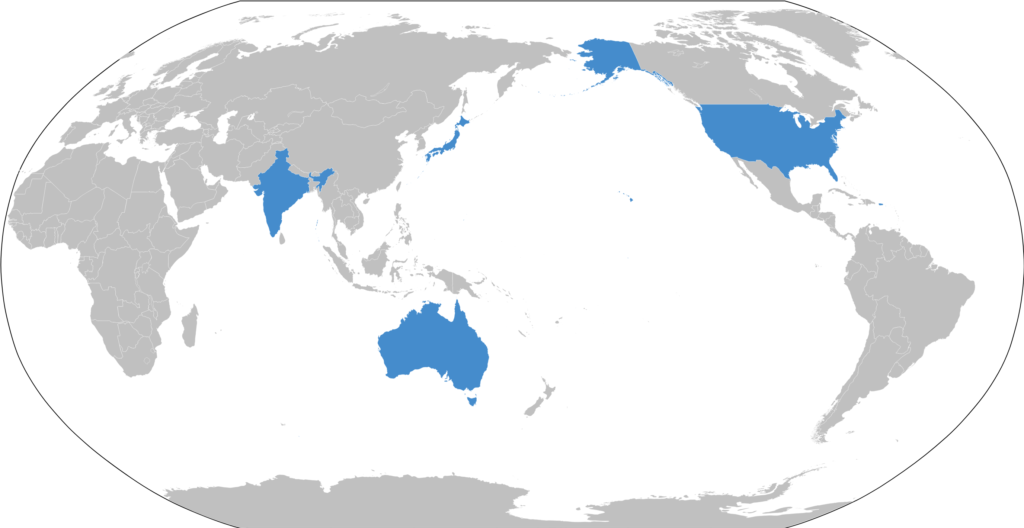RELEVANCE – UPSC General Studies Mains- II
Bilateral, regional and global groupings and agreements involving India and/or affecting India’s interests.
The ‘Quadrilateral’ grouping of India, Australia, Japan and the U.S. is billed as four democracies with a shared objective to ensure and support a “free, open and prosperous” Indo-Pacific region.
Over the past few years, India and Japan have combined efforts on a number of projects in South Asia, including bridges and roads in Bangladesh, an LNG facility in Sri Lanka and reconstruction projects in Myanmar’s Rakhine province, etc..
Australia also unveiled an ambitious projects to fund infrastructure and build maritime and military infrastructure in the Pacific region, on which it is willing to cooperate with other Quad members.
However, the greatest challenge in front of ‘Quadrilateral’ grouping is to accurately describe their common agenda.Despite the potential for cooperation, the Quad remains a mechanism without a defined strategic mission.

In 2007, when the grouping was first formed following cooperation after the 2004 tsunami, the idea was to better coordinate maritime capabilities for disaster situations. When revived in 2017, the grouping seemed to have become a counter to China’s growing inroads into the region, despite denials that any particular country had been targeted.
Even a common definition of the geographical area encompassed has yet to be found. While Washington sees the U.S. and India as “bookends” of the Indo-Pacific, India and Japan have included the oceans up to Africa in their definition. The entire focus on the Indo-Pacific makes the Quad a maritime, rather than land-based grouping, raising questions whether the cooperation extends to the Asia-Pacific and Eurasian regions.
The fact that India is the only member not in a treaty alliance with the other Quad countries will slow the progress somewhat, although each member is committed to building a stronger Quadrilateral engagement.
Another major obstacle which remains in the way is that the Quad countries’ have very different ideas on how to take on China along with, to a lesser extent, the unpredictable nature of promises made by Washington, DC .
But even if the four are not set on what must be done about Beijing, the grouping will likely see them work towards better cooperation on security, trade and freedom of navigation, which in turn will send a message to other countries in the region.
